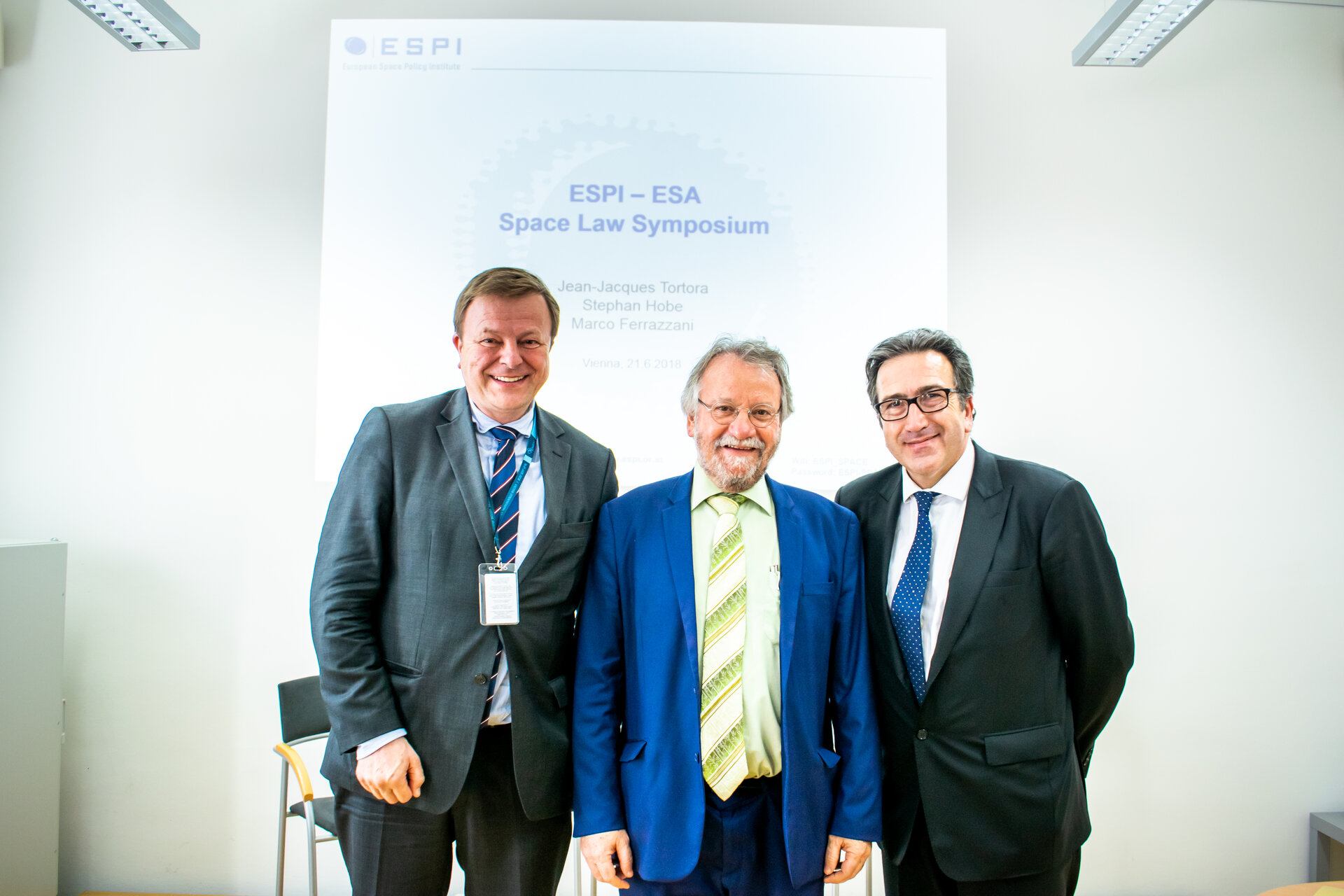ESPI-ESA Space Law Symposium: Intergovernmental Organizations and the Practice of Space Law
On the 21st of June, on the occasion of UNISPACE+50, the European Space Agency (ESA), together with the European Space Policy Institute (ESPI) and the University of Cologne, organized a Scientific Workshop to reflect on the role of International Intergovernmental Organizations (IGOs) in the application and advancement of space law at ESPI.
In the opening remarks, Jean-Jacques Tortora, Director of ESPI, highlighted that nowadays there are numerous new applications deriving from the space activities that challenge the current legal order and lead to different interpretations of some parts of corpus juris spatialis. Therefore, the question arises: how to move forward? Should the current trend of individual States offering unilateral interpretation in the UN COPUOS be followed or is there an intermediate step through regional cooperation?
The first presentation was given by Prof. Stephan Hobe, Director of the Institute for Air Law, Space Law and Cyber Law at the University of Cologne. Prof. Hobe examined in detail the law-making powers of international and regional organization. Even though Intergovernmental Organizations (IGOs) are only partly equipped to enact law on behalf of the Member States, secondary norm-making mechanisms provide them with a possibility to pass new binding regulations, without having to go through ratification in Member States.
The second presentation was given by Dr. Marco Ferrazzani, Legal Counsel and Head of the Legal Services department of ESA. Dr. Ferrazzani addressed the peculiarities of ESA as a regional IGO. It was underlined that ESA is an integrator for the European space programmes, and how the ESA Convention is an essential tool in facilitating the implementation and execution of these programmes. The Convention grants ESA the legal powers to conclude international agreements without going through ratification processes in ESA Member States. Furthermore, ESA became the first IGO to declare acceptance of the rights and obligations set forth by three of the space treaties (LIAB, REG, ARRA). As such, ESA has to implement its space law obligations (e.g. liability, registration) within its legal framework.


